Thriving in the face of adversity as politics and security play an integral part in everyday life is a default position for Israel. The data backs this up: recent OECD reports describe Israel as stable with strong economic growth: annual GDP has consistently risen by three to four percent over recent years to reach nearly $400bn in 2019. This, despite a protracted leadership battle taking place with two general elections in six months bringing the nation no closer to a conclusive result.
Michael Barnea, managing partner of Barnea, Jaffa, Lande & Co, develops the point: ‘The environment is surprisingly robust considering the political instability that we’ve experienced for a considerable time. Investment, both from overseas into Israel and in the local market, is extremely strong and gives every appearance of being confident in the future.’
Despite international law firms being allowed to operate in Israel, they have invariably chosen not to. The legal market is therefore monopolised by domestic players, many of which have grown significantly and the main contributory factor has been a glut of mergers. According to David Tadmor, co-chairman and managing partner of Tadmor Levy, today the largest firm has close to 400 fee-earners, whereas in 2000 it was around 65 lawyers. Herzog Fox & Neeman (HFN) is Israel’s largest law firm, with 380 fee-earners, and at least 20 Israeli firms now have more than 100 lawyers. ‘What sets us apart is that we have grown organically rather than through mergers like some of our competitors,’ says HFN infrastructure partner Mark Phillips.
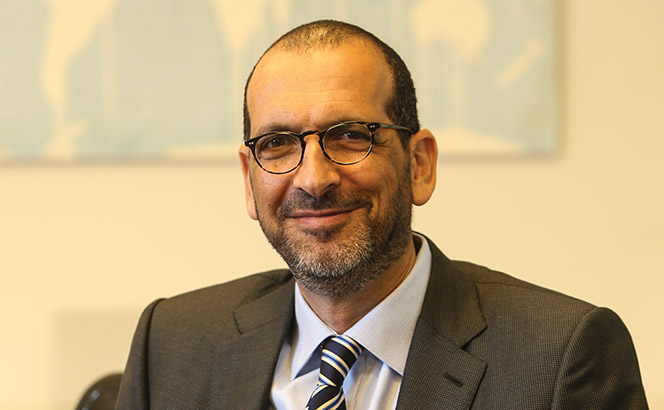
‘The environment is surprisingly robust. Investment is extremely strong and gives every appearance of being confident in the future.’
Michael Barnea, Barnea, Jaffa, Lande & Co
Yudi Levy, managing partner of Goldfarb Seligman & Co, notes there has been a strong trend of large law firms merging with other large firms, smaller firms and specialised boutiques, or even absorbing entire departments of mid-sized firms – a pattern that is expected to continue in 2020. Levy’s own firm was one of the first to begin the trend with the 2011 merger of Goldfarb, Levy, Eran, Meiri, Tzafrir and M. Seligman, and it recently acquired the real estate practice of Berkman Wechsler Bloom – meaning it lays claim to having the largest practice in Israel – alongside the opening of a new branch in Zurich focused on tax.
‘There is fierce competition in Israel over clients; we have a lot of lawyers,’ says Oded Oz, founding partner of Oz / Engel & Co. The Israel Bar Association now has over 80,000 members – twice the number of lawyers in Japan. Chargeout rates vary between $250 and $500 an hour at the top end, with an abundance of choice helping to keep fees down. ‘One of the challenges for professional services firms in Israel is fees. For us, audit fees are not at the level they need to be and it’s becoming the same for lawyers with legal fees,’ says Jonathan Lavender, head of markets at KPMG in Israel.
Tech nation
Last year, UK-based insurance specialist Kennedys entered an official alliance with insurance boutique Zelichov, Ben-Dan & Co – the first formal affiliation of its kind between an Israeli and an international firm. Meanwhile, Bird & Bird is among several international firms with a growing Israel practice. ‘The three main areas where we advise Israeli companies are IP/life sciences, tech and data privacy,’ says partner Howard Rubin, who heads the UK firm’s Israel steering group.
‘We’ve given them a lot of advice on GDPR and we help many Israeli IP-heavy companies,’ he adds. ‘Israel’s domestic market is small, so they very quickly go for international development. When any start-up company is growing in Israel, often the first thing is to look at the US market and then, in parallel or soon afterwards, to go to Europe.’
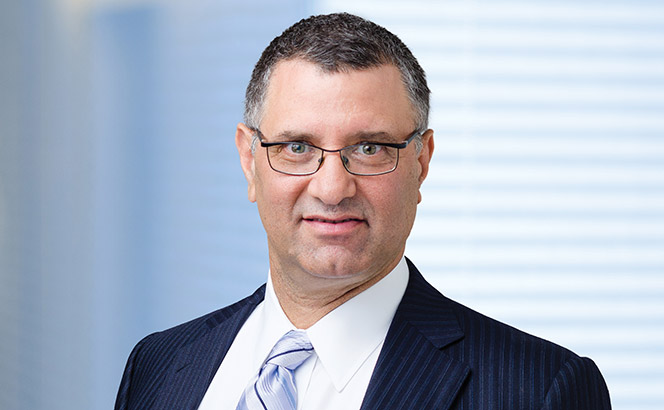
‘Israel is somewhere between a start-up nation and a country in which start-ups are becoming more industrialised.’
Dan Geva, Meitar
Lawyers play an integral part in Israel’s service-based economy, which is dominated by its highly-developed tech sector. Apart from China and the US, it also has more Nasdaq-listed companies (around 100) than any other country. ‘Israel is the Middle East equivalent of Silicon Valley, with similar ecosystems,’ says Ronald Lehmann, corporate partner at Fischer Behar Chen Well Orion & Co (FBC).
The story of Israel’s high-tech achievements is told in the best-selling book, Start-Up Nation, by Dan Senor and Saul Singer. One thesis in the book is that success stems from the Israeli mentality of challenging the status quo. Many successful tech entrepreneurs have come out of the Israeli army, which continues to select the best candidates for its most prestigious forces, such as Unit 8200 – the intelligence unit known for its cyber security and high-tech spying activities. Many key figures in the high-tech industry have served in those units. Says Lavender: ‘If you go into technology units, you need to do five years, so you have a few thousand people coming out of the army with very deep technology capabilities every year.’
Dan Geva, corporate and securities partner at Meitar Liquornik Geva Leshem Tal, suggests: ‘Israel is somewhere between a start-up nation and a country in which start-ups are becoming more industrialised.’ Phillips adds: ‘It’s a self-sustaining cycle: once you have some companies established, people break off, start their own business and do different things. Then the whole industry develops around it.’
At Gross, Kleinhendler, Hodak, Halevy, Greenberg, Shenhav & Co (GKH), Richard Mann heads the firm’s M&A group. ‘We have more than 50 lawyers in our technology practice, many of whom work primarily with start-ups,’ he says. ‘The growth of start-ups and the valuation increase has become much more rapid. Today, there are tech start-ups raising money with valuations in excess of $1bn – something that was unheard of even two years ago.’
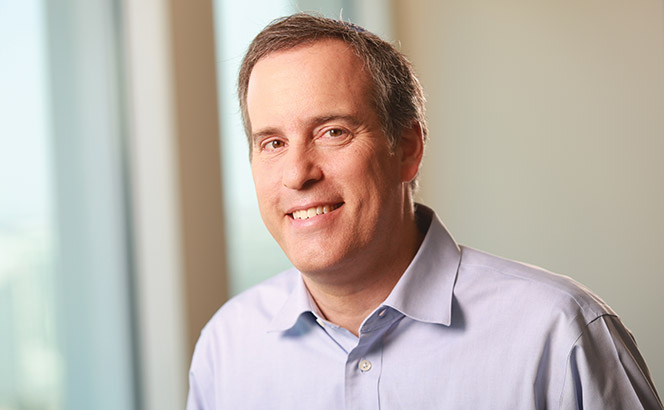
‘What characterises the M&A market is that the variety of acquirers exploring opportunities in Israel has never been greater.’
Richard Mann, GKH
Additional support from Israeli government incentive programmes and venture capital helps to perpetuate success. Levy concludes: ‘With hundreds of innovative start-ups and numerous R&D centres of the world’s largest corporations, Israel is at the forefront of global technological research and innovation, and an attractive destination for global capital investment.’
Deal watch
The corollary is deals aplenty. Israelis are very open to foreign investment; there are few regulatory restrictions beyond those limited to specific areas in the financial and telecoms sectors. As one of the country’s largest foreign investors, Intel announced plans this year for an $11bn Israeli production and research facility. In 2017, it bought Mobileye, an Israeli developer of sensors and artificial intelligence for autonomous driving, for $15.3bn – the largest-ever purchase of an Israeli tech company. Skadden, Arps, Slate, Meagher & Flom advised Intel while Morrison & Foerster advised Mobileye on the deal.
Sponsored briefings
Profile – Richard Mann, partner, GKH
Israel adopts the UNCITRAL Model Law
At $25.7bn, last year saw the highest aggregate value for Israeli M&A since 2012; in volume, 132 deals involved Israeli companies. Around 40% of them were in the tech, pharma, medical and biotech sectors, including the $3.1bn acquisition of Orbotech by Nasdaq-listed KLA Corporation; Thoma Bravo’s purchase of Nasdaq-listed Imperva for $2.1bn; and Medtronic’s $1.64bn acquisition of Israel-based Mazor Robotics. Outside tech, Israeli industrial companies were predominant: International Flavors & Fragrances bought Frutarom for $6.9bn, while Pepsico acquired SodaStream for $3.2bn.
Meitar was involved in four of the top five deals in 2018, advising KLA Tencor, Thoma Bravo and Medtronic on the buy side and SodaStream on the sell side. Geva says: ‘These deals clearly demonstrate that international – mostly US – investors trust that in acquiring sophisticated Israeli companies – and in the way they develop their processes – they are relatively very advanced. Almost every large international group, especially in technology, admires Israeli innovation and the country’s work ethic. In the first half of 2019, we advised on around 100 investments in new technology companies.’
Of the top dozen deals by value in 2018, HFN (which advised Pepsico) and Tadmor were involved in two apiece. This included Tadmor advising Leumi Card – together with FBC – on its $685m acquisition by Warburg Pincus, which was advised by Goldfarb. According to Mergermarket, the five most active firms in M&A last year were: Meitar, HFN, Naschitz Brandes Amir, Yigal Arnon and Erdinast, Ben Nathan, Toledano & Co (EBN).
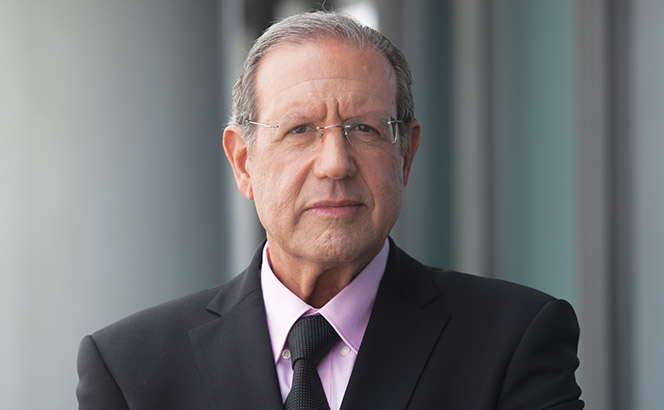
‘Our firm is working relentlessly to advance innovative technological initiatives within the firm and for the entire Israeli legal sector.’
Yudi Levy, Goldfarb Seligman & Co
‘When your practice focuses on the seller side in tech, it never slows down because Israelis will always have motivation to found new technology companies,’ says Nimrod Vromen, partner at Yigal Arnon. ‘I divide the tech industry work very distinctly into buyers and sellers – sellers being start-ups and tech companies, and buyers being investors and acquirers. At some point, start-ups also become buyers when they are big enough. The focus of what we do is to act as consigliere to an entrepreneur or tech founder from day one until well after the company floats.’
Doni Toledano, head of M&A and banking and finance at EBN, adds: ‘You see a lot of activity among life sciences, medical devices, digital health, communications and fintech. Even in industries that are less tech-oriented, for example, Netafim, which was sold last year for $1.9bn, it’s not a high-tech company per se; it’s a drip irrigation company, but it deploys technologies that allow it to elevate itself. So, even companies that are not traditionally high tech see the importance of technology.’ Skadden and EBN advised the previous owner of Netafim – private equity house Permira – while the acquirer, Mexichem, was advised by Covington & Burling.
In addition to advising Bank Leumi on its divestment of Leumi Card, FBC is currently representing two private equity funds – one US-UK and the other US-based – in their acquisition of Phoenix, one of Israel’s largest insurance companies. ‘A few years ago, we saw significant interest from China in a whole range of industries – everything from high tech to industrial – there was a tremendous spike of interest,’ says Lehmann. ‘But the Chinese profile has receded. We’re now seeing the increasing involvement of private equity funds from the US and Europe in large transactions.’
Tech has continued to dominate Israeli M&A in 2019, albeit in a quieter market: ten tech deals were announced in Q1 and a further 12 in Q2. By far the biggest so far is NVIDIA’s $6.9bn acquisition of Israeli big-data connectivity company Mellanox Technologies, which is being advised by HFN and Latham & Watkins. NVIDIA is being advised by Jones Day.
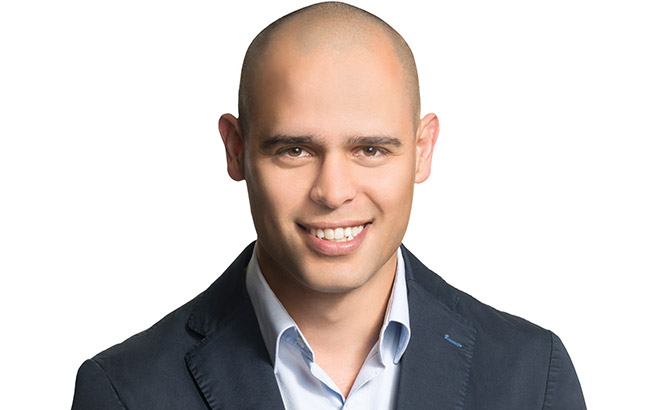
‘The legal profession is in the midst of a cataclysmic battle with technology and the ever-growing sophistication of clients.’
Nimrod Vromen, Yigal Arnon
Another firm to make the top ten advisers list by value is GKH, where Mann notes: ‘There’s no question that the M&A market is very strong. What characterises it more than any other factor is that the variety of different acquirers currently exploring opportunities in Israel has never been greater – particularly in terms of geography, but also in many different industries.’ Barnea agrees: ‘We’ve never been busier, we have about 30 M&A deals going on: some of them already signed, others in the process of being concluded. This has not been the case before. We see more companies coming from various jurisdictions expressing a desire to be involved in the Israeli economy.’
Mann notes that US companies have always been active investors in Israel. ‘But it’s a much more widely dispersed market than ever before, including significant representation from European entities, with the Asian practice quite fast growing,’ he says. ‘Asia means primarily China, but also includes Korea and Japan, and to a lesser extent India. The strongest sectors are cyber and IT, while there is also a lot of interest in automotive technology as a result of the Mobileye transaction.’ McKinsey analysts also expect Israeli companies to account for an increasing share of the global auto-tech market.
Low tech
But in a tech-driven nation, Israeli law firms represent something of an irony: few deploy tech as a central part of their client offering. ‘While the legal sector is notoriously conservative and slow to adopt technological advances, our firm is working relentlessly to advance innovative technological initiatives both within the firm and for the entire Israeli legal sector,’ says Levy. Goldfarb has introduced GS Lab, a new legal tech innovation programme, and touts an innovative client interface used in urban development projects.
But such initiatives are rare. ‘Israel is failing in adopting Israeli technology and it’s not just in the legal sector: Israeli companies are good at exporting these technologies but not very good at buying them,’ says Noory Bechor, chief executive of LawGeex, an Israeli company that provides automated legal review systems through artificial intelligence technology. Vromen also recognises the challenge: ‘The traditional legal profession is in the midst of a cataclysmic battle with technology and the ever-growing sophistication of clients,’ he says. ‘Their demand for simple, cheap and fast legal products is increasing and this is actually legitimate given our access to technology to generate those products.’
‘Israel is failing to adopt Israeli technology, not just in the legal sector. Companies are good at exporting these technologies but not very good at buying them.’
Noory Bechor, LawGeex
Toledano outlines the clear practical barriers to tech innovation in the legal sector. ‘The cost of development of these tools is quite significant and the Israeli market, being relatively small, needs to wait for them to be developed in English and then translated into Hebrew,’ he says. ‘It’s a bit too much to ask Israeli law firms, the largest of which are 300-400 lawyers, for us to bear this cost independently.’
There is also much more to Israel than M&A and tech start-ups. In developing the economy, energy and infrastructure play a key part. In a country where security is under constant threat, Israel is particularly vulnerable because its energy demand has historically been much higher than its production, making it heavily reliant on imports. But this is changing, not least because of significant discoveries of natural gas during the past decade in offshore fields combined with the shift to renewables. Government reforms have moved the market away from the Israel Electric Corporation monopoly in electricity generation and allowed the development of large-scale independent power producer projects, both conventional and renewable energy: solar wind and pump storage.
The gas discoveries led to development in the Mari-B and Tamar fields, followed by further discoveries in the Leviathan, Karish and Tanin fields. Between them, the natural gas delivered will eventually provide about 70% of Israel’s electricity needs with production from the facilities expected to commence next year. ‘As they are being developed, they need the infrastructure to get the gas onshore,’ says Phillips. ‘We have advised a lot of the upstream: financing for Tamar, Karish and Tanin. Downstream, we’ve advised on the financing of power plants running on natural gas.’
Anat Klein, head of the energy and infrastructure department at GKH, notes that renewables are being widely introduced, contributing over 20% to renewable electricity – mostly solar, some wind, as well as thermo-solar and bio-gas. She points to a new regulation relating to the construction of small-scale power plants in factories based on natural gas (up to 16MW).
‘We represent a large number of factories using this regulation to construct internal co-generation plants for the reduction of energy costs,’ she says. ‘This includes Tnuva, the largest Israeli manufacturer of dairy products, which constructed a 70MW power plant, as well as oil refineries that have two of these power plants on their premises, around 60/70MW each, based on a different regulation concerning large co-generation plants (above 16MW). We also represent Dalia, the largest private producer of electricity based on natural gas through a power station in Tzafit.’
To improve transport links, extensive railway and light rail lines are scheduled for construction over the next two decades. Once completed, Israel’s largest infrastructure project will comprise three metro lines, several light rail lines, and train lines connecting regions and cities. The total projected cost may exceed $100bn. And, perhaps inevitably in Israel, politics plays a part.
‘In the recent tender for the Green Line of the Jerusalem Light Rail, there were only two bidders,’ says Phillips. ‘The feeling in the industry was that international companies were not interested in bidding because that means a presence on the ground in Jerusalem, which is a political issue for them. By contrast, Tel Aviv Light Rail, which is happening now, will be more interesting for international players because it’s Tel Aviv.’
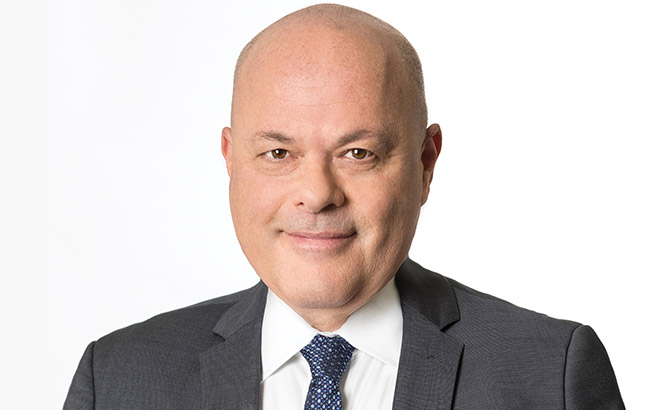
‘It is no coincidence that Israel is suddenly one of the global centres for cannabis, because Israelis identified this opportunity and started working on it much earlier than other places.’
Doni Toledano, EBN
Klein adds: ‘We represented a huge tender for the Green and Purple Lines in Jerusalem. There were only two bids and we represented one of them, but unfortunately, it was not awarded to our client. We’re now representing the Shikun & Binui and Egged group, together with Chinese companies, for the Green and Purple Lines of Tel Aviv – the largest tender ever published in Israel.’
As an interesting endnote, medicinal cannabis now features prominently among embryonic sectors of the Israeli economy. ‘For better or worse, Israel is not as strict and conformist as Germany, or even the UK or US,’ says Toledano. ‘People are more spontaneous, less rules-bound, which allows more creativity, ingenuity and adapting to changing circumstances. It is no coincidence that Israel is suddenly one of the global centres for cannabis. Why? Solely because Israelis identified this opportunity and started working on it much earlier than other places.’
Levy also notes this recent development and how it has brought some considerable work for Israel’s firms: ‘The M&A scene in medicinal cannabis has been very active, with major transactions, investments and agreements carried out in Israel and abroad. This includes a series of investments in the BOL Group, one of our firm’s prominent clients in the field, amounting to tens of millions of dollars – an extraordinarily large amount for medicinal cannabis.’
This is an industry that in many ways exemplifies the Israeli market: entrepreneurship and a willingness to take a less conventional route. Again, this involves working with scores of shell companies in place that have big export plans for the future, opening up another sector in which the ingenuity of this start-up nation will, no doubt, provide work for its many lawyers over the coming decade. An unsettled market does not necessarily mean chaos and uncertainty provides opportunities to thrive. LB
Reaching the top – Leading Israel firms ranked in key practice areas
Commercial, corporate and M&A
❶ Erdinast, Ben Nathan, Toledano & Co
❶ Fischer Behar Chen Well Orion & Co
❶ Goldfarb Seligman & Co
❶ Gornitzky & Co
❶ Gross, Kleinhendler, Hodak, Halevy, Greenberg, Shenhav & Co
❶ Herzog Fox & Neeman
❶ Meitar Liquornik Geva Leshem Tal
❶ Naschitz Brandes Amir
❶ S. Horowitz & Co
❶ Yigal Arnon & Co
❷ Barnea
❷ M. Firon & Co Advocates
❷ Tadmor Levy & Co
❷ Tulchinsky Stern Marciano Cohen Levitski & Co
❸ Agmon & Co. Rosenberg Hacohen & Co
❸ Amit, Pollak, Matalon & Co
❸ H-F & Co
❸ Rotenberg & Co
❸ Shibolet & Co
Dispute resolution: local litigation and arbitration
❶ Meitar Liquornik Geva Leshem Tal
❶ S. Horowitz & Co
❷ Agmon & Co. Rosenberg Hacohen & Co
❷ Erdinast, Ben Nathan, Toledano & Co
❷ Fischer Behar Chen Well Orion & Co
❷ Goldfarb Seligman & Co
❷ Gornitzky & Co
❷ Herzog Fox & Neeman
❷ Tadmor Levy & Co
❷ Yigal Arnon & Co
❸ Amit, Pollak, Matalon & Co
❸ M. Firon & Co Advocates
❸ Shibolet & Co
High-tech and start-ups
❶ Amit, Pollak, Matalon & Co
❶ Goldfarb Seligman & Co
❶ Gross, Kleinhendler, Hodak, Halevy, Greenberg, Shenhav & Co
❶ H-F & Co
❶ Herzog Fox & Neeman
❶ Meitar Liquornik Geva Leshem Tal
❶ Naschitz Brandes Amir
❶ Shibolet & Co
❶ Yigal Arnon & Co
❷ Erdinast, Ben Nathan, Toledano & Co
❷ Fischer Behar Chen Well Orion & Co
❷ Pearl Cohen Zedek Latzer Baratz
❷ Raz, Dlugin & Co
❷ Tadmor Levy & Co
❸ AYR – Amar Reiter Jeanne Shochatovitch & Co
❸ Epstein Rosenblum Maoz (ERM)
❸ Furth, Wilensky, Mizrachi, Knaani – Law Offices
❸ Gornitzky & Co
❸ Horn [+] Co
❸ Katzenell Dimant
❸ M. Firon & Co Advocates
❸ S. Horowitz & Co
❸ Tulchinsky Stern Marciano Cohen Levitski & Co
❸ Zysman, Aharoni, Gayer & Co
Time for change – the disputes scene in Israel

Given Israel’s abundance of lawyers, it is no surprise that disputes are commonplace. Perhaps more surprising is its low global ranking for the number of judges per capita in Israel: a modest 59th place, according to global data and statistics site Actualitix.
‘Israel has more lawyers per capita than any other country and probably half the number of judges of a normal country,’ says David Tadmor, co-chairman and managing partner of Tadmor Levy & Co. For parties in dispute, this inevitably causes frustration as litigation can be lengthy and this can be used tactically. ‘Often, people would not even initiate litigation because of the time it takes; sometimes, they would because of the time it would take,’ adds Levy.
New civil procedure rules that come into effect next year are intended to simplify procedure and expedite the process, reflecting the fact that litigation in Israel has been growing while the court system has not kept pace. As an alternative, arbitration in Tel Aviv is favoured by some, but more often the parties in dispute choose London, followed by New York, as the preferred seats. ‘Sometimes you see arbitration clauses in Geneva or in Zurich, but mostly it’s London or New York,’ says Yigal Arnon litigation partner Dror Varsano.
Notwithstanding procedural delays and the alternative dispute resolution options, there is still plenty of courtroom activity to keep litigators busy. ‘We have around 100 lawyers doing litigation,’ says Dan Geva at Meitar Liquornik Geva Leshem Tal, which has the largest litigation practice. ‘Most of it is commercial and corporate, with a small element of white-collar crime and enforcement work.’ Alon Pomeranc, managing partner and head of litigation at Lipa Meir & Co, says: ‘We do a lot of banking and insolvency-related litigation. We have represented Bank Hapoalim, the biggest bank in Israel, in dozens of cases, as well as other banks such as Discount Bank, Leumi Bank and Alfa Bank in large lawsuits or sensitive matters.’ In contractual and corporate disputes Lipa Meir has also represented the Ministry of Finance, KPMG USA, Siemens, Alstom and the Rothschild family.
Eli Zohar, chairman of Goldfarb Seligman & Co, notes that his firm’s client, the Israel Tax Authority, has been involved in many contentious proceedings against various international corporations. In addition, he says, the firm is among the first in Israel to work with litigation finance funds on complex disputes. Multinationals have also instructed Goldfarb to defend class actions by Israelis. ‘Several high-profile class actions and derivative actions have been submitted against leading corporations, senior executives and directors,’ says Zohar. ‘These claims often follow prior enforcement action abroad.’
Varsano adds: ‘Class actions are very big in Israel – US-style class actions. In some respects, they are more aggressive in Israel than in the US, especially since the pendulum in the US has shifted more to the defence side. In Israel, that hasn’t happened yet. There has been a recent government attempt to try and streamline this industry through the introduction of court fees. Before that, class actions were exempt. There has been some shift: less mass class actions on smaller cases, such as product labelling, and more serious larger-scale class actions in the environmental, antitrust and financial areas.’







